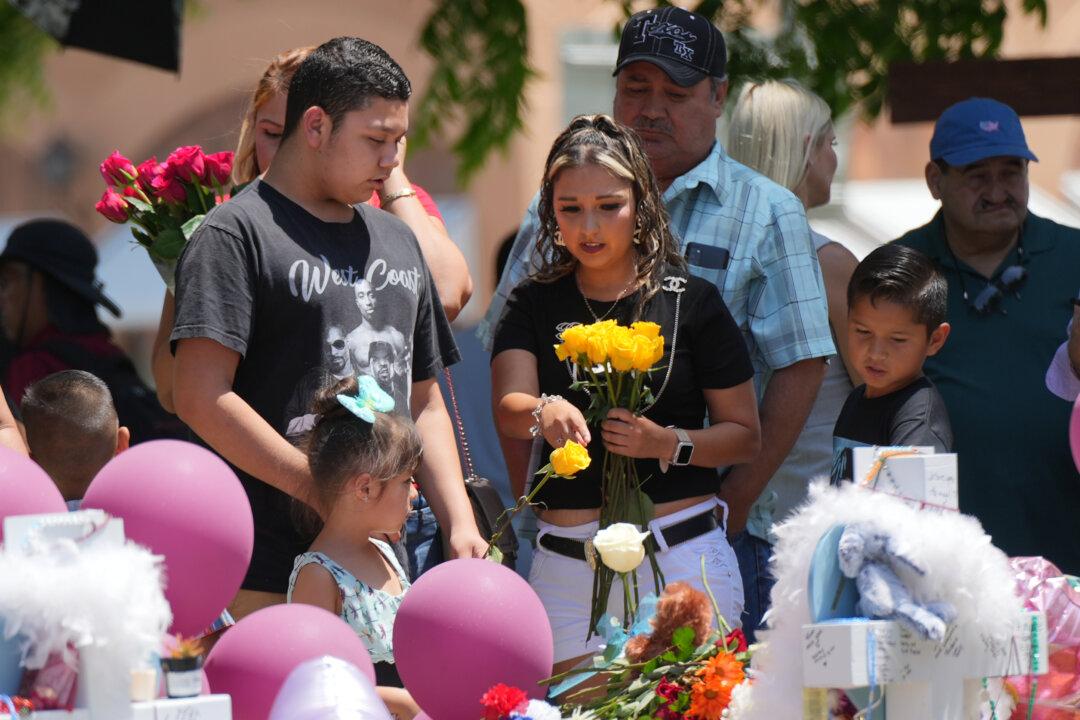The families of 19 children and two teachers who were slain on May 24 in Uvalde, Texas, spent last week at funeral homes and gravesites, saying goodbye to their loved ones.
“The parents are destroyed. Heartbroken. They’re never going to be the same again—ever,” Andy Pollack told The Epoch Times. Pollack’s 18-year-old daughter Meadow was one of 17 people killed in the 2018 mass shooting at a high school in Parkland, Florida.





